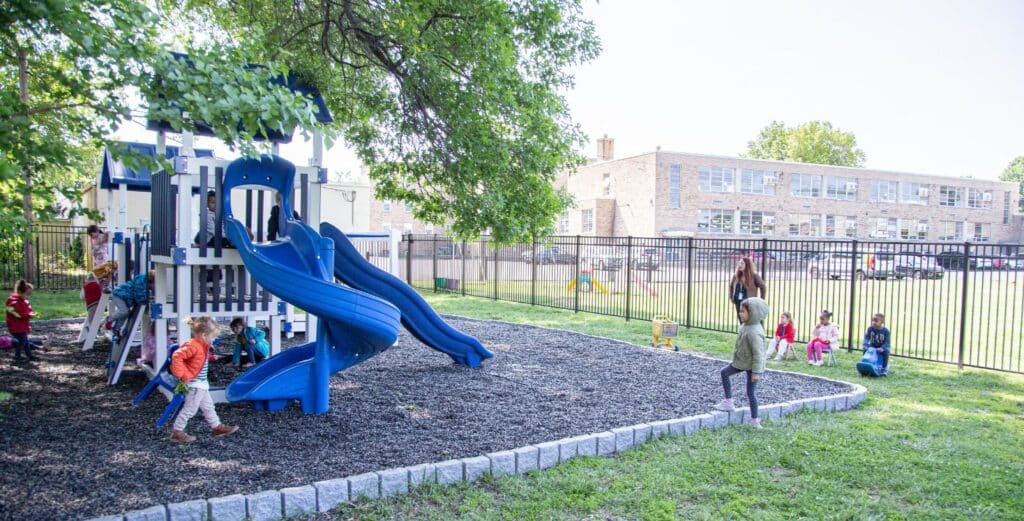In today’s interconnected world, being able to communicate in multiple languages is not just a cultural advantage—it’s a cognitive superpower. Research on the cognitive benefits of being bilingual shows an intriguing fact: speaking multiple languages not only enhances your global fluency but also makes your brain function more efficiently, for a longer time, and in more creative ways.
This article explores how bilingualism enhances memory, sharpens problem-solving skills, delays cognitive decline, boosts emotional intelligence, and prepares learners for academic and professional success. Grounded in the latest scientific research, these findings underscore why bilingual education isn’t just an advantage, it’s a necessity.
Table of contents
- What are the Cognitive Benefits of Being Bilingual?
- How Does Bilingualism Impact Academic and Professional Performance?
- The Role of Early Bilingual Education
- How Do the Cognitive Benefits of Being Bilingual Contribute to Delayed Cognitive Decline?
- Want to Learn More About Our International and Bilingual Education?
What are the Cognitive Benefits of Being Bilingual?

The science is clear: bilingual brains operate differently. When individuals juggle two languages, they activate a network of brain regions associated with control, attention, and switching tasks, core components of executive function. According to Dr. Ellen Bialystok, a renowned cognitive neuroscientist, this mental exercise strengthens the brain’s capacity to adapt and respond to challenges (Bialystok, 2001).
Does Bilingualism Improve Memory?
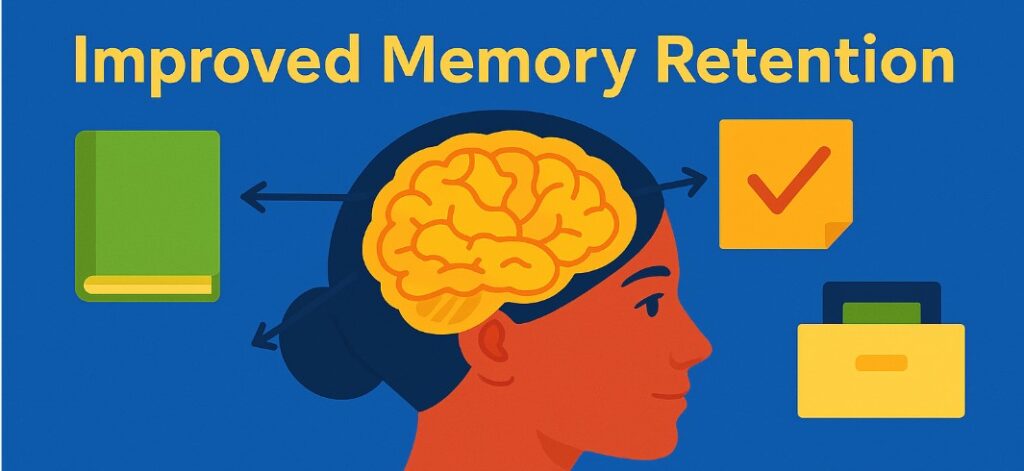
One of the most notable cognitive benefits of being bilingual is stronger working memory. Studies by Bialystok and colleagues show that bilingual individuals retain and manipulate information more effectively than their monolingual peers. This heightened memory function translates into practical advantages, such as improved learning, faster recall, and better multitasking. These skills are foundational for academic performance and lifelong learning.
Does Bilingualism Improve Problem-Solving Skills
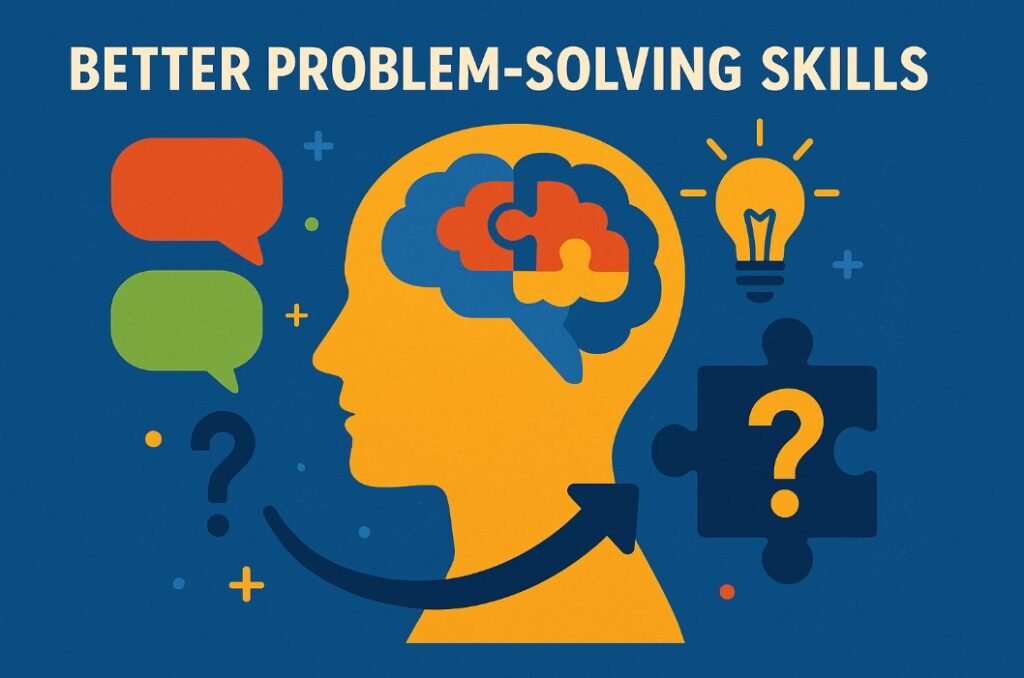
Navigating multiple linguistic systems enhances analytical thinking and decision-making. Bilinguals show improved inhibitory control, the brain’s ability to filter distractions, and a greater capacity for recognizing patterns. These cognitive traits help bilingual individuals outperform in complex, problem-solving scenarios. Bilingual students often demonstrate advanced reasoning skills and are better equipped to approach problems from different perspectives.
How Does Bilingualism Increased Cognitive Flexibility
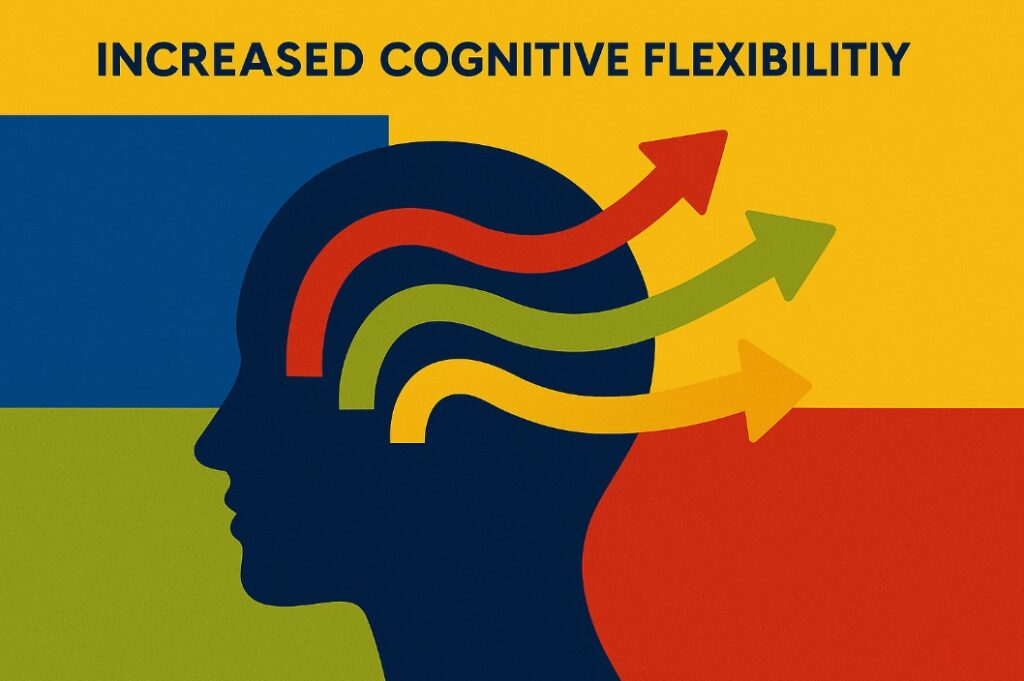
The cognitive benefits of being bilingual also include enhanced flexibility, the ability to switch between thoughts or tasks effortlessly. Constantly shifting between languages primes the brain to think in adaptable and creative ways. This agility supports better learning outcomes, faster reaction times, and greater emotional intelligence. In real-world terms, this means bilingual individuals are often more open to change, more resilient in stressful situations, and more creative in finding solutions.
Does Being Bilingual Improve Emotional Intelligence and Enhance Perspective-Taking
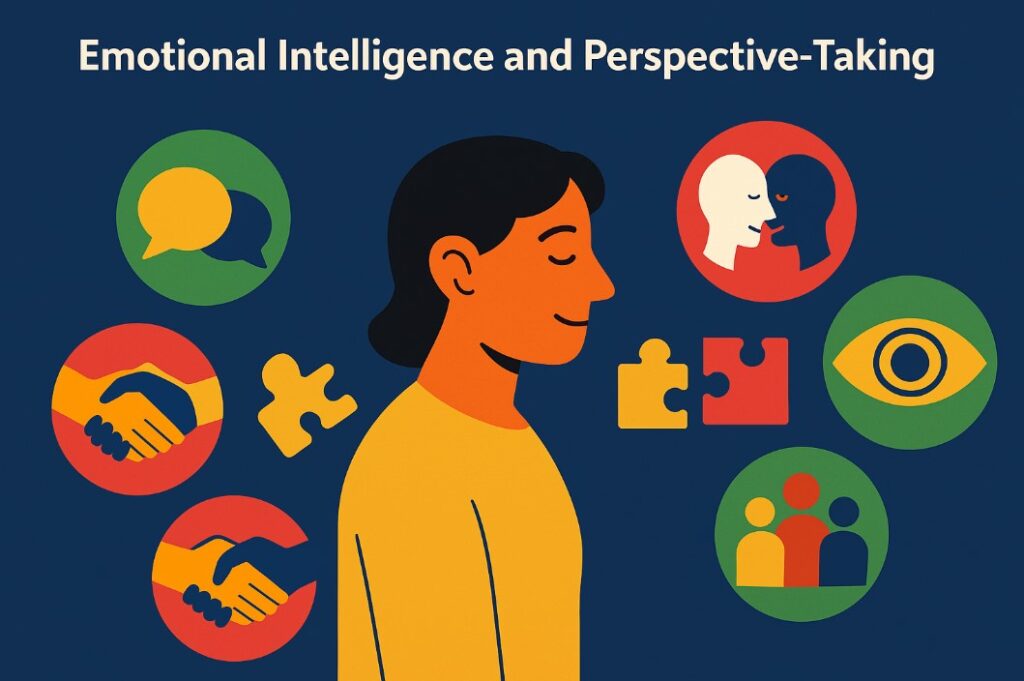
Bilingualism not only enhances cognitive ability, it also deepens emotional intelligence. Exposure to multiple languages often comes with exposure to diverse cultures, increasing empathy and perspective-taking. Bilingual individuals are more attuned to nonverbal cues and more adept at interpreting social dynamics. This sociocognitive flexibility contributes to stronger interpersonal skills and conflict resolution.
How Does Bilingualism Impact Academic and Professional Performance?
Students in bilingual programs benefit from enhanced academic performance, especially in reading comprehension, spatial reasoning, and verbal fluency. According to a landmark longitudinal study by Thomas and Collier (2002), titled A National Study of School Effectiveness for Language Minority Students’ Long-Term Academic Achievement, researchers analyzed over 700,000 student records across five U.S. school districts over a period of 15 years. The study found that students in long-term bilingual programs consistently outperformed their monolingual peers on standardized tests.
This academic edge extends beyond the classroom. In professional settings, bilingual individuals bring valuable skills such as adaptability, cross-cultural communication, and collaborative problem-solving. Employers increasingly seek bilingual talent for their ability to navigate diverse environments and lead in multicultural teams.
The Role of Early Bilingual Education

Introducing bilingual education in early childhood compounds these cognitive advantages. Children’s brains are particularly plastic in the early years, making it easier to acquire language and develop deep neural connections. Early bilingual education strengthens foundational literacy, enhances executive function, and increases long-term academic outcomes. Furthermore, starting young helps normalize diversity and fosters inclusive thinking.
How Do the Cognitive Benefits of Being Bilingual Contribute to Delayed Cognitive Decline?

Lifelong bilingualism has been shown to delay the onset of dementia and Alzheimer’s disease significantly. Research demonstrates that bilingual individuals may experience symptoms of dementia approximately four years later than their monolingual counterparts. This delay is attributed to improved brain flexibility or neuroplasticity (the brain’s ability to change and adapt due to experience), this active use of different parts of the brain to engage in bilingual thought processes, and better blood flow to different regions. (Bialystok et al., 460) The slower rate of cognitive decline found in bilingual individuals emphasizes an important protective benefit of bilingualism.
Longitudinal studies, such as those summarized in the Annual Review of Applied Linguistics, show that the benefits of bilingual education build progressively over time, helping students achieve grade-level skills faster than those in traditional programs. As students face greater academic and cognitive demands, bilingualism provides them with enhanced skills to meet these challenges effectively.
Want to Learn More About Our International and Bilingual Education?

If you’re interested in how our international and bilingual education can benefit your child, we invite you to learn more about our philosophy and curriculum. At the French American Academy, we offer bilingual education that strengthens cognitive skills, enhances academic success, and prepares students for a globally connected world.
Visit our campus, explore our programs, or contact us directly for more information. Our team would be happy to answer your questions and show you how bilingualism can positively impact your child’s educational journey.
Sources:
- Bialystok, E. (2001). “Bilingualism in Development: Language, Literacy, and Cognition.” This book discusses how bilingualism enhances cognitive processes like memory and flexibility.
- Bialystok, E., Craik, F. I. M., & Freedman, M. (2007). “Bilingualism as a protective factor against dementia and cognitive decline.” Cognitive Psychology, 55(3), 163-168. This study found that bilingualism can delay the onset of dementia by up to 4-5 years.
- Bialystok, E., Craik, F. I. M., & Ryan, J. (2006). “Cognitive control in bilinguals: Evidence from the Simon task.” Journal of Experimental Psychology: Learning, Memory, and Cognition, 32(4), 935-943. This study illustrates that bilinguals perform better in tasks requiring cognitive control.
- Thomas, W. P., & Collier, V. P. (2002). “A National Study of School Effectiveness for Language Minority Students’ Long-Term Academic Achievement.” This report indicates that bilingual students often perform better academically compared to their monolingual peers, particularly in verbal and spatial tasks.







